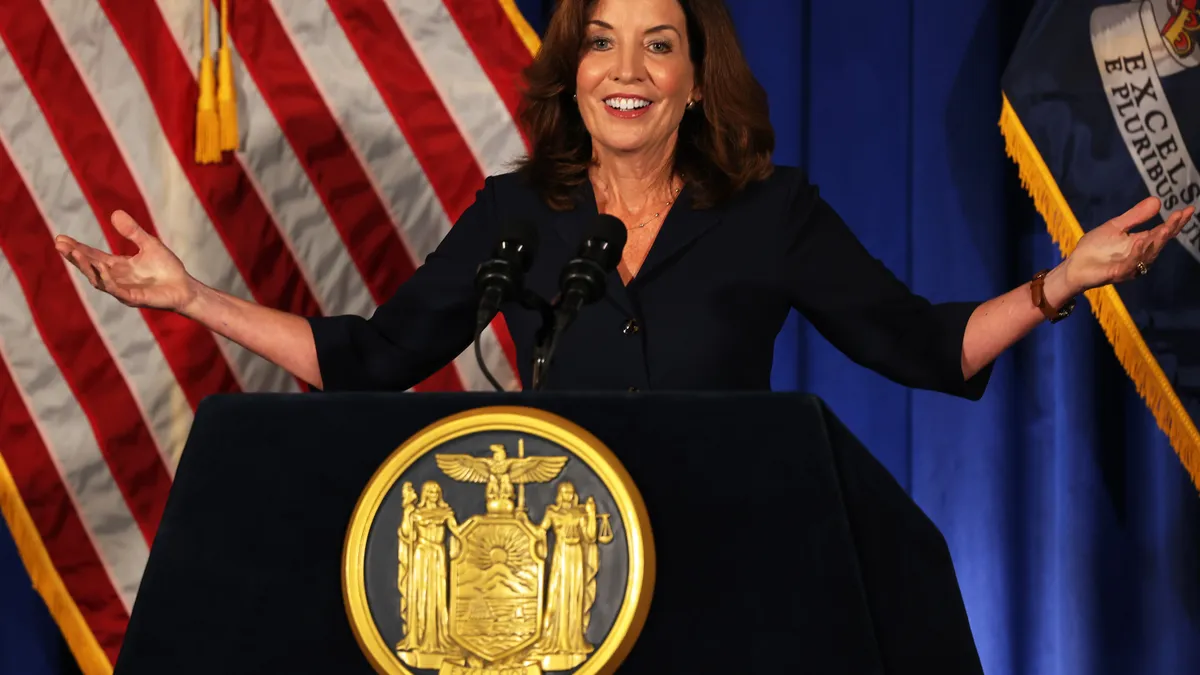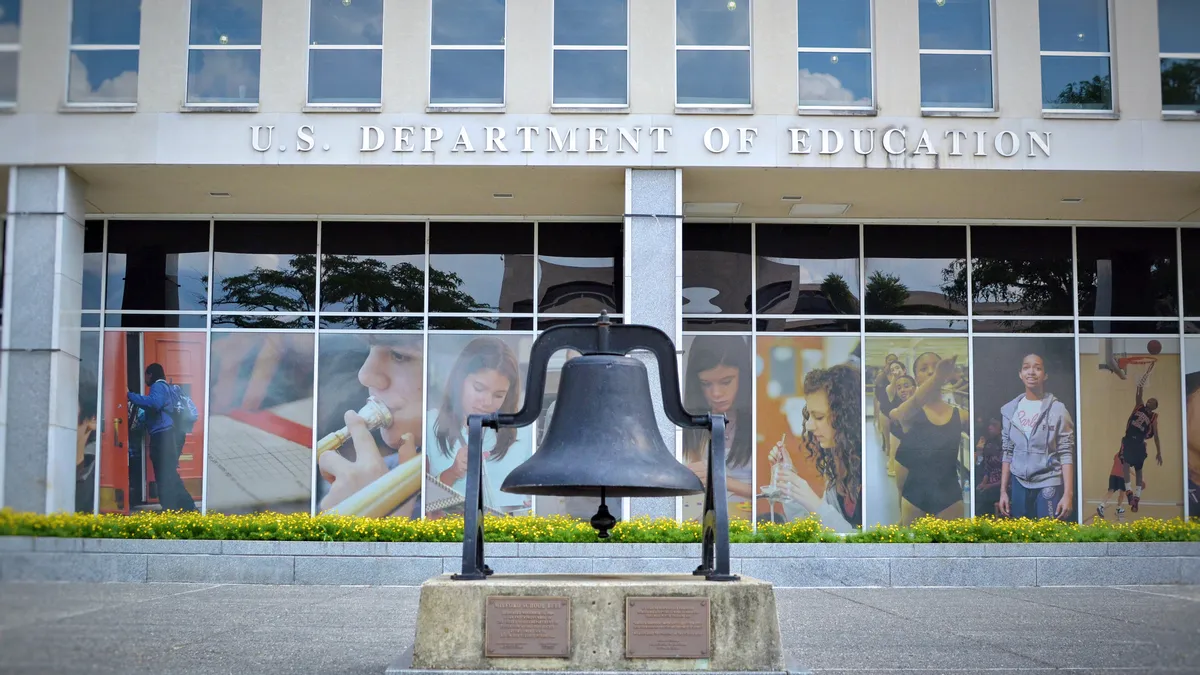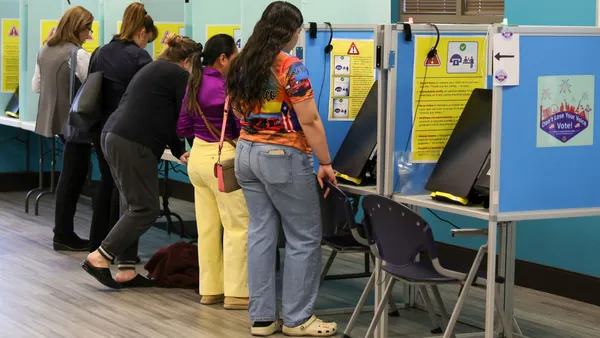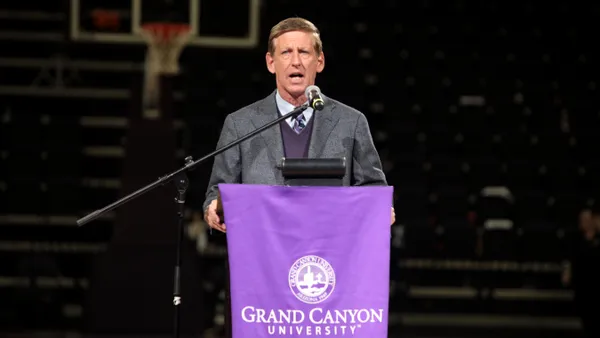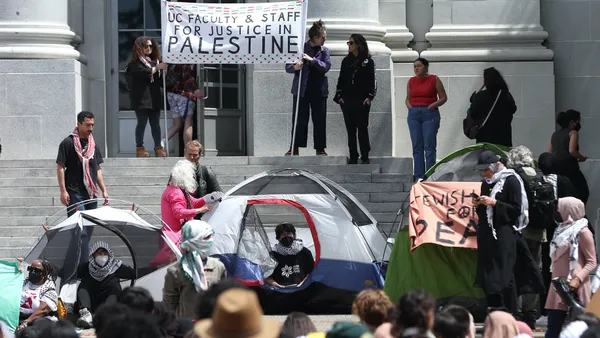Dive Brief:
- The State University of New York, the U.S.'s largest public comprehensive higher education system, will no longer withhold academic transcripts from students with outstanding debt, it announced this week.
- The decision, effective immediately, came after the state's governor, Democrat Kathy Hochul, said she would direct all public institutions to cease the practice. Hochul said she would introduce legislation to mandate all colleges in the state to do so as well.
- SUNY's move represents a win in the campaign to end these types of transcript holds nationwide. Critics say the holds are often over relatively small amounts of money owed on tuition or fines but that they hinder students from transferring to another college, graduating or landing jobs.
Dive Insight:
Students often need proof of their academic record to transfer to another institution or apply for higher-level academic programs or employment. A movement to stop colleges from holding back the transcripts of indebted students predates the pandemic, but the health crisis's fallout sharpened focus on the practice and others that fuel inequities.
Adult learners, low-income students, and those who are members of racial and ethnic minority groups are the most likely to have earned college credit but not a credential due to institutions withholding this paperwork, according to a 2020 report by research nonprofit Ithaka S+R.
An estimated 6.6 million students have these "stranded credits," the report found.
The students often owe only marginal debt amounts. A 2020 survey from the American Association of Collegiate Registrars and Admissions Officers found that two-thirds of reporting colleges would put holds on transcripts for balances of less than $25.
Although colleges may never receive the bulk of the debts causing them to withhold transcripts, they carry it on their books. Ithaka S+R estimated that colleges' unpaid balances could be as much as $15 billion across the country. A surge in colleges clearing debts this summer was enabled in part by federal guidance allowing institutions to apply federal coronavirus relief dollars toward paying off unpaid balances.
Prominent forces in education have called for colleges to end the withholding of transcripts.
U.S. Education Secretary Miguel Cardona said in December college leaders should reconsider using transcript holds, noting how they interfere with retaining underserved students and helping them graduate.
And a joint statement last year from the American Council on Education, the top higher ed lobby, and two other higher ed associations said colleges "should remove unnecessary obstacles that prevent students from accessing their transcripts."
Policymakers in other states have moved to block the practice. Bills have passed in California and in Louisiana to prohibit public colleges from enforcing these types of transcript holds or to give them the option of doing so. Other states, including Minnesota and Massachusetts, have put forth similar legislation.
One of the most recent proposals comes from Virginia's legislature, which recently advanced a bill to a Senate committee.
And a collection of eight public colleges in northeastern Ohio recently banded together to help students with stranded credits reenroll by resolving their outstanding debts and developing personalized plans to get them back in the classroom.
Hochul, the New York governor, has made transcript holds a cornerstone of her education platform, along with a restructuring of SUNY that intends to significantly boost enrollment and designates two institutions as state flagships.
About half of SUNY students graduate without debt, according to the system. But the remainder graduate with an average outstanding balance of roughly $3,500. As of 2020, about 19,000 students still owed money to a SUNY campus.
New York City's public higher ed network, the City University of New York, in August suspended the practice of withholding transcripts.
"While I am proud that SUNY students will no longer have their transcripts held hostage, all students deserve the same protections," Hochul said in a statement. "We must pass legislation to end this unjust practice for all New York students once and for all."



